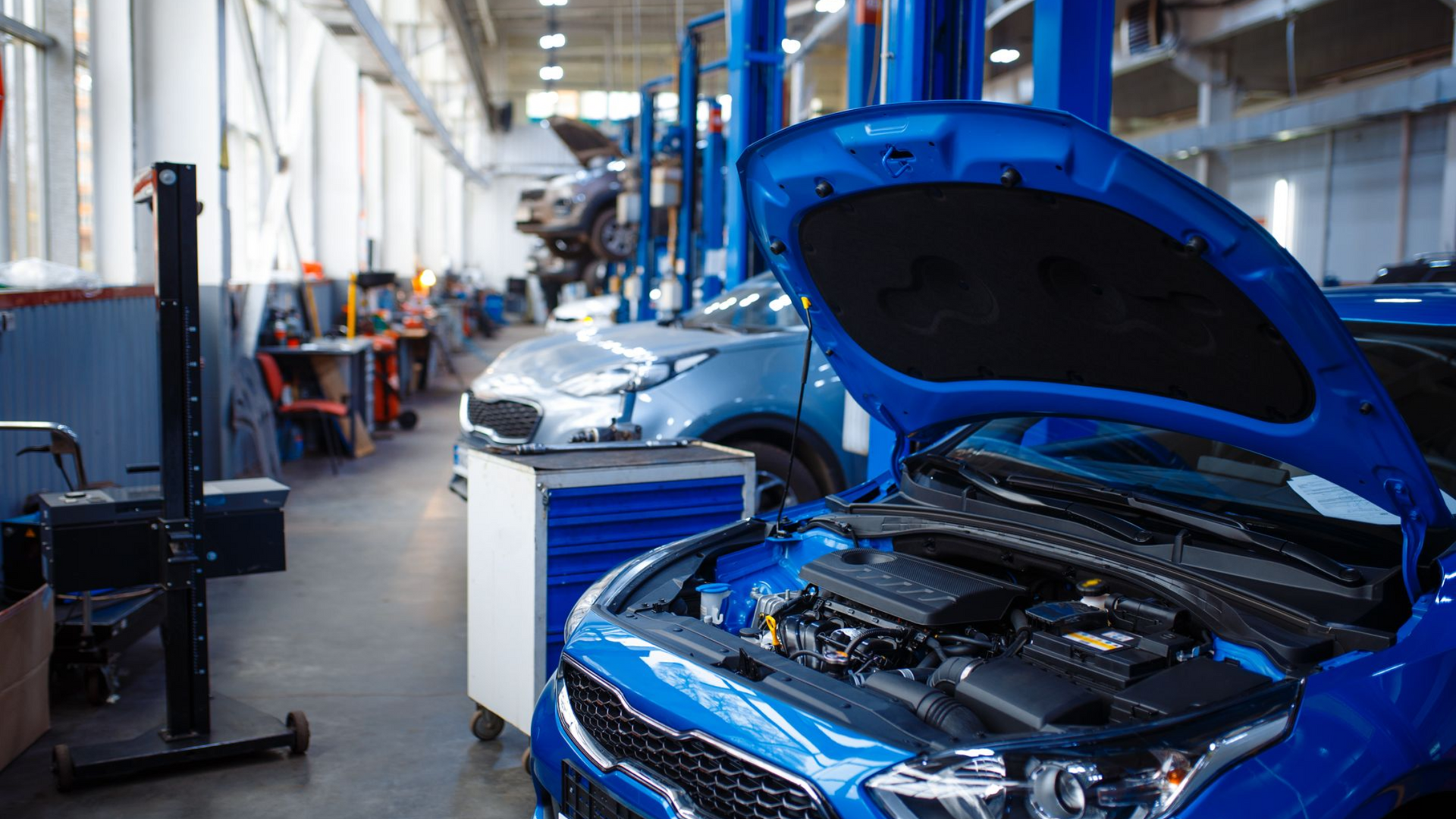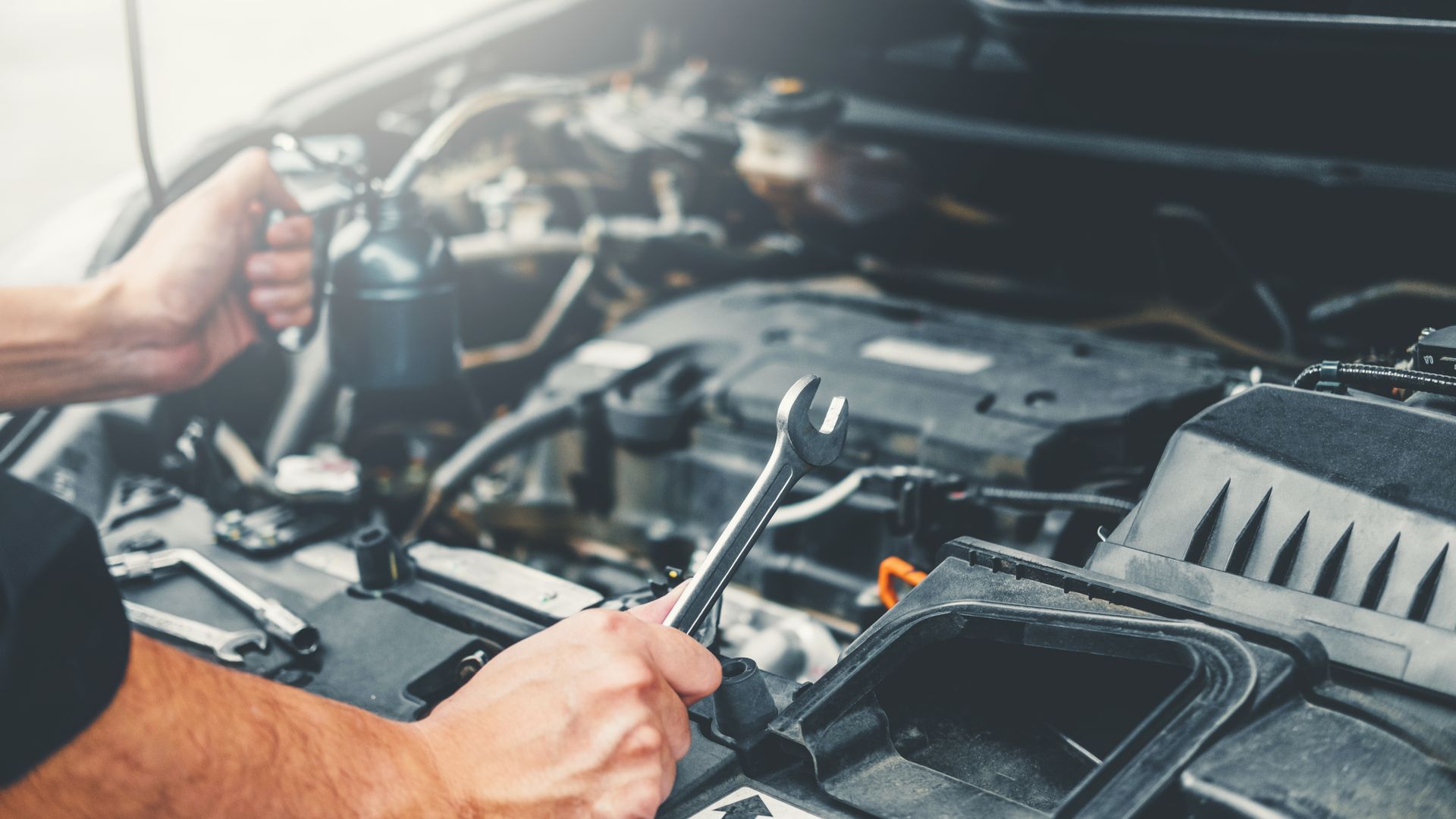How to Keep Your Car’s Shock Absorbers in Perfect Condition
How to Keep Your Car’s Shock Absorbers in Perfect Condition

Have you ever felt like your car ride has been more of a bouncing castle adventure than a smooth cruise down the highway? Well, your shock absorbers might just be crying out for a little care. Maintaining your car’s shock absorbers isn’t just about comfort; it’s crucial for your vehicle’s overall health and safety.
So, how do you keep them in top-notch condition? It’s simpler than you might think. Here’s a quick rundown:
In this article, we’ll break down these tips so your rides are as smooth as jazz on a Sunday morning.
What Are Shock Absorbers?
Shock absorbers are like the buffer between your car’s body and the wheels. They absorb and dampen the shock from the road surface, helping to keep your car stable and giving you control while driving.
Why Maintain Them?
Keeping your shock absorbers in good shape is key to maintaining vehicle safety, ensuring comfortable rides, and extending the lifespan of your car’s suspension system.
How to Maintain Shock Absorbers?
Inspect for Wear and Tear
Start by visually inspecting your shocks or struts for signs of physical damage like dents or corrosion. Also, check for leaks – if you see any fluid on the exterior of the shock absorber, it’s time for a replacement.
Listen While You Drive
Be alert for unusual noises—rattles, knocks, or squeaks—that occur, especially when driving over bumps or potholes. These sounds could be telltale signs that your shock absorbers need attention.
Feel Your Car’s Handling
If your car starts to feel unusually bouncy or it sways during turns, it might indicate worn shock absorbers. Poor braking performance can also be a symptom of failing shocks.
A Quick Recall: To keep your car’s shock absorbers in perfect condition, conduct regular checks for leaks and damage, listen for strange noises, and note any changes in vehicle handling. Don’t forget to schedule professional inspections according to your car manufacturer’s recommendations.
When to Seek Professional Help?
It’s wise to get your shock absorbers checked by professionals to see if you’re experiencing continuous discomfort while driving or if the vehicle’s handling has changed significantly. Mechanics can perform detailed inspections and replace shock absorbers if necessary.
Pro Tips for Shock Maintenance
Keep Them Clean
Regularly cleaning your shock absorbers can prevent dirt and debris from causing premature wear and tear. A simple wipe-down with a damp cloth can do the trick.
Check the Mounting Points
It’s crucial to check the mounting points for any looseness or damage. Tighten any loose bolts and replace worn parts as necessary to ensure everything is securely in place.
Review the Ride Height
Incorrect ride height can indicate worn-out shocks or struts. Make sure your vehicle maintains its standard ride height, and consult a professional if there are significant deviations.
Road Test Your Vehicle
After any work on your vehicle, especially concerning the suspension, take it for a test drive. This will help you feel any differences in handling and ensure everything is working correctly.
Conclusion
Maintaining your shock absorbers isn’t just about enhancing comfort—it’s a critical component of your vehicle’s operational integrity and safety. Regular checks, listening to your car’s performance, and professional assessments are all part of keeping your rides smooth and safe. Remember, well-maintained shock absorbers make all the difference between a good and a great driving experience.
And there you have it! Treat your car to regular shock absorber check-ups, and it will surely return the favor with smooth, safe journeys.
Frequently Asked Questions (FAQs)
What is the average lifespan of shock absorbers?
Shock absorbers typically last anywhere from 50,000 to 100,000 miles, but this can vary based on driving habits and road conditions.
How often should shock absorbers be replaced?
It’s generally recommended to consider replacing shock absorbers every 50,000 miles, but always refer to your vehicle’s owner’s manual for specific guidance.
Can I replace the shock absorbers myself?
Replacing shock absorbers can be complex and requires specific tools and safety measures. It’s usually best left to professionals unless you have experience and the right equipment.
What are the signs of failing shock absorbers? Signs include increased bouncing, uneven tire wear, leaking fluid, poor braking performance, and an overall rough ride.
So, how do you keep them in top-notch condition? It’s simpler than you might think. Here’s a quick rundown:
- Regularly check for leaks or damage
- Ensure they are not worn out beyond the manufacturer’s service period
- Keep an eye on the vehicle’s handling and stability
- Listen for unusual noises when driving
- Get them inspected by a professional regularly
In this article, we’ll break down these tips so your rides are as smooth as jazz on a Sunday morning.
What Are Shock Absorbers?
Shock absorbers are like the buffer between your car’s body and the wheels. They absorb and dampen the shock from the road surface, helping to keep your car stable and giving you control while driving.
Why Maintain Them?
Keeping your shock absorbers in good shape is key to maintaining vehicle safety, ensuring comfortable rides, and extending the lifespan of your car’s suspension system.
How to Maintain Shock Absorbers?
Inspect for Wear and Tear
Start by visually inspecting your shocks or struts for signs of physical damage like dents or corrosion. Also, check for leaks – if you see any fluid on the exterior of the shock absorber, it’s time for a replacement.
Listen While You Drive
Be alert for unusual noises—rattles, knocks, or squeaks—that occur, especially when driving over bumps or potholes. These sounds could be telltale signs that your shock absorbers need attention.
Feel Your Car’s Handling
If your car starts to feel unusually bouncy or it sways during turns, it might indicate worn shock absorbers. Poor braking performance can also be a symptom of failing shocks.
A Quick Recall: To keep your car’s shock absorbers in perfect condition, conduct regular checks for leaks and damage, listen for strange noises, and note any changes in vehicle handling. Don’t forget to schedule professional inspections according to your car manufacturer’s recommendations.
When to Seek Professional Help?
It’s wise to get your shock absorbers checked by professionals to see if you’re experiencing continuous discomfort while driving or if the vehicle’s handling has changed significantly. Mechanics can perform detailed inspections and replace shock absorbers if necessary.
Pro Tips for Shock Maintenance
Keep Them Clean
Regularly cleaning your shock absorbers can prevent dirt and debris from causing premature wear and tear. A simple wipe-down with a damp cloth can do the trick.
Check the Mounting Points
It’s crucial to check the mounting points for any looseness or damage. Tighten any loose bolts and replace worn parts as necessary to ensure everything is securely in place.
Review the Ride Height
Incorrect ride height can indicate worn-out shocks or struts. Make sure your vehicle maintains its standard ride height, and consult a professional if there are significant deviations.
Road Test Your Vehicle
After any work on your vehicle, especially concerning the suspension, take it for a test drive. This will help you feel any differences in handling and ensure everything is working correctly.
Conclusion
Maintaining your shock absorbers isn’t just about enhancing comfort—it’s a critical component of your vehicle’s operational integrity and safety. Regular checks, listening to your car’s performance, and professional assessments are all part of keeping your rides smooth and safe. Remember, well-maintained shock absorbers make all the difference between a good and a great driving experience.
And there you have it! Treat your car to regular shock absorber check-ups, and it will surely return the favor with smooth, safe journeys.
Frequently Asked Questions (FAQs)
What is the average lifespan of shock absorbers?
Shock absorbers typically last anywhere from 50,000 to 100,000 miles, but this can vary based on driving habits and road conditions.
How often should shock absorbers be replaced?
It’s generally recommended to consider replacing shock absorbers every 50,000 miles, but always refer to your vehicle’s owner’s manual for specific guidance.
Can I replace the shock absorbers myself?
Replacing shock absorbers can be complex and requires specific tools and safety measures. It’s usually best left to professionals unless you have experience and the right equipment.
What are the signs of failing shock absorbers? Signs include increased bouncing, uneven tire wear, leaking fluid, poor braking performance, and an overall rough ride.

There’s something special about McLoughlin Blvd. For decades, this stretch of road has been the heart of Portland’s automotive scene lined with car dealerships, family-run service shops, and local businesses that have helped generations of drivers find and care for their vehicles. And at the center of it all, PDX Cars & Trucks Service Center continues that tradition offering honest, high-quality auto repair right here on McLoughlin Blvd. A Boulevard Built on Automotive History Since the 1950s, McLoughlin Blvd has been known as Portland’s “Auto Row.” It’s where drivers have always come to buy, trade, and service their vehicles. The boulevard’s long history of dealerships and mechanics built a reputation for reliability, and a place where locals could find both cars and care in one stretch. Today, PDX Cars & Trucks Service Center proudly keeps that spirit alive as a trusted neighborhood mechanic, offering the kind of service that’s becoming harder to find - friendly, transparent, and dependable. Why Drivers Trust PDX Cars & Trucks Service Center Local Service You Can Feel Good About We’re not a chain or a franchise. We’re your local auto shop nestled near Mcloughlin Blvd, and that means we take the time to know you and your car. Our goal is to build trust with every visit, and not just get you in and out. Transparent Pricing & No Hidden Fees Our team gives you clear, honest estimates before any work begins. You’ll never find surprise charges or confusing jargon here. Just fair pricing and straightforward communication. Warranty-Backed Repairs Every job we do, from brake repair and tire service to engine diagnostics is backed by warranty on both parts and labor. That’s how we make sure your investment goes further. Convenient location near McLoughlin Blvd on East Arlington Street and Portland Avenue in Gladstone, OR. Located in the heart of Portland’s auto district, we’re surrounded by the same dealerships and car businesses that made this area famous. If you’ve recently bought a car nearby, we’re the perfect shop to handle your oil changes, maintenance, and repairs. Quality Work, Personal Touch Our ASE-certified technicians use the latest tools and technology, but we never lose the personal touch. Every car is treated like it’s our own because your trust is what keeps us on the road. Complete Auto Services Available At PDX Cars & Trucks Service Center, you’ll find everything you need to keep your vehicle performing at its best: Brake repair & replacement Tire service, balance & alignment Engine repair & diagnostics Oil changes & filter replacements Transmission & electrical repair Heating & cooling service Routine maintenance & tune-ups Whether you drive a new car from one of the McLoughlin Blvd dealerships or a family vehicle you’ve had for years, we’ll keep it running smoothly. The Spirit of McLoughlin Blvd Lives Here McLoughlin Blvd has always been more than a road. It’s a community of small businesses built on trust, skill, and service. PDX Cars & Trucks Service Center is proud to carry that legacy forward, offering drivers reliable repairs, honest pricing, and friendly service that feels like home. Visit us today and ask about our services!

You must have noticed how your car seems to lose its pep after a while; it’s not as lively as it once was. Maybe it’s quietly begging for a tuning with a good old engine tune-up. Just like us, cars need regular check-ups to stay in peak condition. Think of It This Way : Would you ever skip your annual health check-up if you want to keep feeling your best? Probably not, right? Well, your car feels the same way about its tune-ups! A regular engine tune-up can: Boost your car’s overall performance Ramp up fuel efficiency Minimize the risk of unexpected breakdowns Prolong the lifespan of your engine Help you save money on costly future repairs In this article, we’re going to explore the real benefits of keeping up with engine tune-ups, how they can prevent future car troubles, and why they’re essential for ensuring your car runs like a dream. Why Tune Up Your Engine? Just like a balanced diet and regular exercise can keep you feeling great, tune-ups are essential for your car’s health. Neglecting engine maintenance might not cause trouble immediately, but over time, it can lead to significant issues that could have been easily avoided. Regular check-ups help catch potential problems early on, ensuring your car continues to perform efficiently and reliably. Fuel Efficiency to the Max Who doesn’t want to save money at the fuel pump? Regular tune-ups ensure that your engine runs efficiently, burning fuel at an optimal rate. This helps you cut down on fuel consumption and reduces your carbon footprint. It’s a win-win for both your wallet and the environment! Performance Like Day One Remember that thrill when you first pressed the pedal on your new car? Regular tune-ups can help restore that feeling, ensuring your car performs at its best. By adjusting the engine settings, cleaning the fuel system, and replacing parts that are wearing out, a tune-up can make your car feel brand new again. Avoid the Breakdown Blues No one likes being stranded by the roadside. Regular engine check-ups can spot small issues before they turn into major problems. This proactive approach to maintenance means you’re less likely to face a breakdown, keeping you and your vehicle safe on the road. Long Life for Your Car Consistent maintenance doesn’t just fix current problems—it helps prevent future ones, extending the life of your car. Just as regular doctor visits can keep you healthy, regular tune-ups can help your car run better and last longer. This ultimately protects your automotive investment and ensures that you get the most out of your vehicle. What Does a Tune-Up Include? A typical engine tune-up might include: Thorough inspection and replacement of spark plugs and ignition wires Replacement of the air filter to ensure clean air intake Examination and potential replacement of the fuel filter Checking the distributor cap and rotor for wear Timing belt inspection and necessary adjustments to engine timing The specifics of a tune-up can vary based on your vehicle’s make, model, and age. Your mechanic will also likely check other systems that directly impact engine performance, such as the braking system, oil levels, and cooling systems. Tips for Maintaining Your Engine Between Tune-Ups You can do a lot between professional tune-ups to keep your car running smoothly: Regularly check and maintain your car’s fluid levels (oil, coolant, brake fluid) and replenish them as necessary. Be attentive to any unusual sounds or changes in your car’s performance and address them promptly. Adhere to the maintenance schedule recommended by your car’s manufacturer. This can often be found in your owner’s manual. Conclusion Regular engine tune-ups are crucial for maintaining your vehicle’s health, just like regular check-ups are for your body. They keep your car running efficiently, extend its lifespan, and save you money both at the gas pump and in potential repair costs. Regular tune-ups ensure that your car remains a reliable, enjoyable part of your life for years to come. Remember, the key to vehicle longevity is preventative maintenance. Just like taking care of your health can prevent illnesses, taking care of your car prevents mechanical issues. So, don’t wait for signs of trouble; keep up with your engine tune-ups and enjoy a smoother, more reliable ride! Frequently Asked Questions (FAQs) Why should I get my car’s engine tuned regularly? Regular engine tune-ups maintain your car’s performance, enhance fuel efficiency, prevent breakdowns, and extend the engine’s life. What are common signs that my car needs a tune-up? Common signs that suggest a tune-up might be necessary include a decrease in fuel efficiency, irregular or sluggish performance, difficulties starting, unusual noises, or an increase in exhaust emissions. If you notice these symptoms, it might be time for a check-up. How often should I tune-up my engine? The frequency of engine tune-ups can vary depending on your vehicle’s make and model, but a good rule of thumb is to refer to your car’s owner’s manual or consult a trusted mechanic for specific recommendations.
